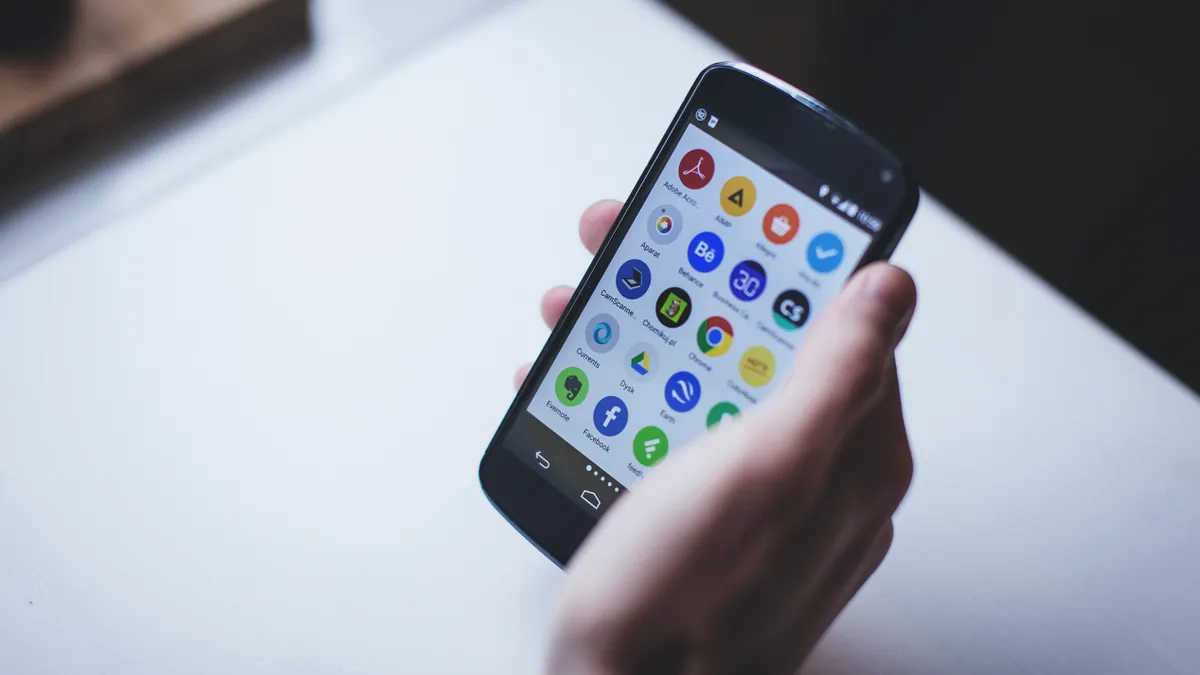Brief:
- More than one quarter (26%) of programmatic in-app ad impressions was fraudulent in Q3, indicating that invalid traffic (IVT) is a costly problem for mobile marketers, per a report by fraud management platform Pixalate. The firm also found that many apps in the Google Play store threaten brand safety, consumer privacy and national security.
- Apps registered in China and Hong Kong had the highest IVT rate for in-app programmatic ads at 33%, followed by the 24% for apps that weren't registered in any country. The U.S. was in third place with an IVT rate of 19%, ahead of Russia at 18% and other shell locations at 14%, per Pixalate.
- The firm said 31,000 Android apps were possibly unsafe for brands because of objectionable content such as profanity, violence and pornography. Those apps generated 32% of global programmatic ad impressions in Q3, up from 27% in Q1, a worrisome trend for mobile marketers, per Pixalate.
Insight:
Pixalate's study, which covers a wide range of nefarious activity among Android apps, indicates that ad fraud and brand safety remain serious problems for mobile marketers that may not be aware of where their ads are appearing through programmatic channels. The Google Play store had 3.21 million apps as of the end of Q3, and more than 16% of those, or 513,000, supported programmatic advertising. Most of those apps likely are from legitimate developers, but mobile marketers need to be wary of apps that generate a disproportionate amount of invalid traffic, Pixalate's study suggests.
Google has worked to police its app store, delisting more than 880,000 apps during the first nine months of the year, but the number of total apps continues to grow, according to Pixalate. Those delisted apps were downloaded more than 18 billion times, and generated 5% of in-app ad impressions. Some delisted apps may have contained malware, but being delisted isn't necessarily a sign of fraudulent activity. For example, Sony's Xperia Lounge was downloaded more than 100 million times during the first nine months of the year. The electronics company in August pulled the plug on the entertainment app amid a broader restructuring of its mobile division, Android Police reported. As Pixalate notes, some delisted apps may reappear in Google Play.
Consumer privacy also is a significant concern, with 81% of the top 10,000 apps in the U.S. having at least one "dangerous permission," as Pixalate describes apps that can access a user's personal data through a smartphone camera, microphone or GPS coordinates. Android apps with more than 100 million downloads have an average of 5.6 dangerous permissions, more than apps that aren't as popular. The implications for consumer privacy aren't completely clear, given that Google requires Android apps to seek consent to access sensitive user data. Many consumers may grant camera access to photo-sharing apps, as one example, for them to function properly.
With the U.S. government investigating TikTok, the social video app owned by China's ByteDance, because of national security concerns, Pixalate also looked at potential threats from Android apps. It found that many delisted Chinese and Russian apps had dangerous permissions, including the ability to obtain location data of mobile users. It's not clear whether those apps are necessarily a threat to national security because mobile consumers grant them access to their phones. However, the FBI this month announced that Russian mobile apps are considered a potential counterintelligence threat because the country has access to data carried on Russian computer networks.














